Women are on the front-lines of climate change, from rising seas to extreme weather. We’re also leading the charge at global climate talks and rallying people power to protect our planet.
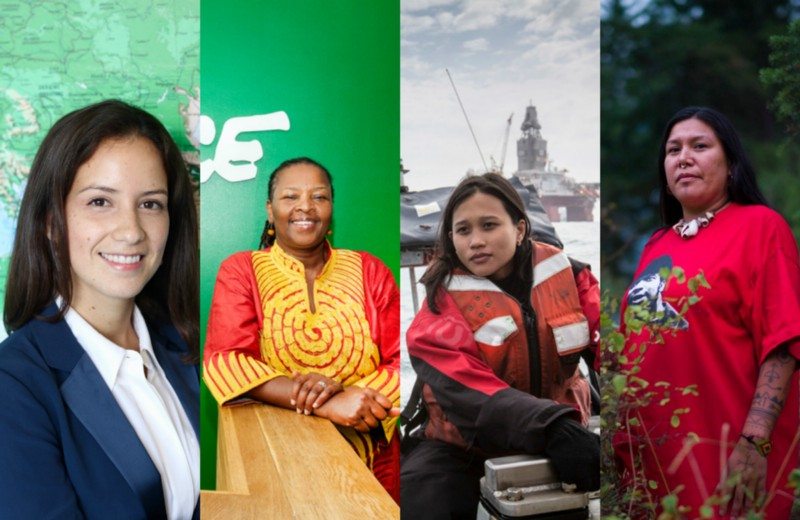
Some of us are at the helm of business, government or civil society organisations. Together, we can bring an end to fossil fuels and speed transition to a renewable energy future we can all enjoy.
Here are eight women I’m watching as world leaders talk climate at COP23 in Bonn, Germany:
—
Alisi Nacewa
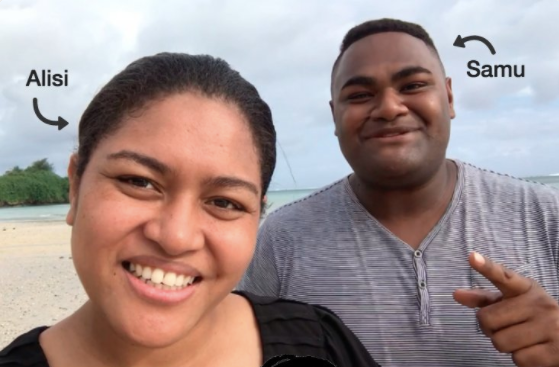
From Fiji, an island nation vulnerable to the impacts of climate change, Alisi is in Bonn with Pacific Island Represent to call out countries who say they’re acting on climate change but are doing the opposite. She then heads to Norway to bear witness in a lawsuit against the Norwegian government on Arctic oil drilling.
“The time for climate sweet-talk is over. We’re facing the impacts of climate change today. And we need action now,” she says.
“The countries most responsible for climate change, who are continuing to burn and supply the world with new coal, oil and gas are breaking their Paris commitments. 1.5 degrees means no new fossil fuels. No way. No matter how politicians try to spin it.”
Follow Alisi’s journey on Instagram and Twitter.
Angela Merkel
The German Chancellor must bring big commitments to Bonn if she’s to reclaim her climate-chancellor badge. As part of discussions in the new government, she needs to signal in Bonn that she truly understands what’s at stake for people around the world and outline how Germany will meet its 2020 emissions targets. Can Merkel meet the climate leadership challenge?
Speed up the energy revolution: tell Europe to quit coal.
Joanna Sustento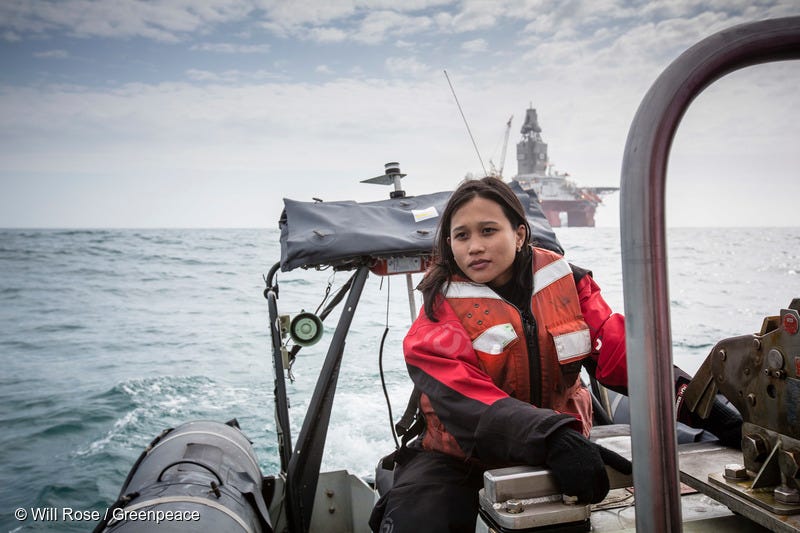
Joanna survived super-typhoon Haiyan, known locally as Yolanda, when it hit her home, Tacloban in the Philippines, in 2013. At least 6,300 people died.
Since then, she’s made it her mission to demand climate action. This year she visited the Arctic to tell the Norwegian government to stop their dangerous search for new oil. Joanna is inspired by fellow Filipinos who are using the law to pressure big polluters like Shell and ExxonMobil.
“It’s scary to think that super-typhoons could become the new normal if governments allow more oil drilling,” says Joanna. “It gives me hope to see that right now people are taking peaceful action for the climate all over the world and holding governments accountable.”
Add your name to support communities seeking climate justice.
Kanahus Manuel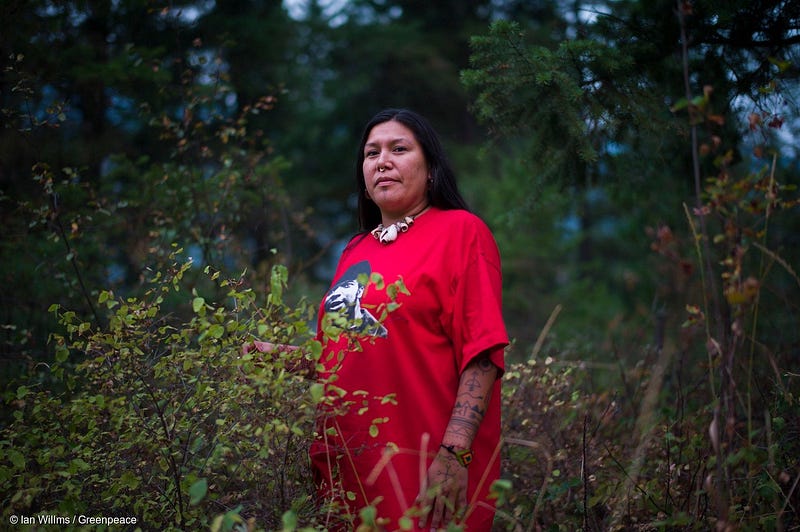
Kanahus is one of the Tiny House Warriors, a grassroots Indigenous group building homes in the path of a crude oil pipeline, to protect their land and waters in Secwepemc territory, British Columbia, Canada. She recently returned from Europe, where she was advising banks and investors to step away from the Kinder Morgan Trans Mountain Expansion project.
Tiny House Warriors also teamed up with Melina Laboucan-Massimo of Lubicon Solar to put solar on their tiny homes.
“It’s the mothers, caretakers, nurturers in our Nation who are standing up, because we see clearly what the future holds for our children,” says Kanahus. “By harnessing the power of the sun, our energy systems can help nurture life instead of destroying it.”
Show solidarity in the struggle to stop tar sands pipelines.#NoPipelines
Michelle Jonker-Argueta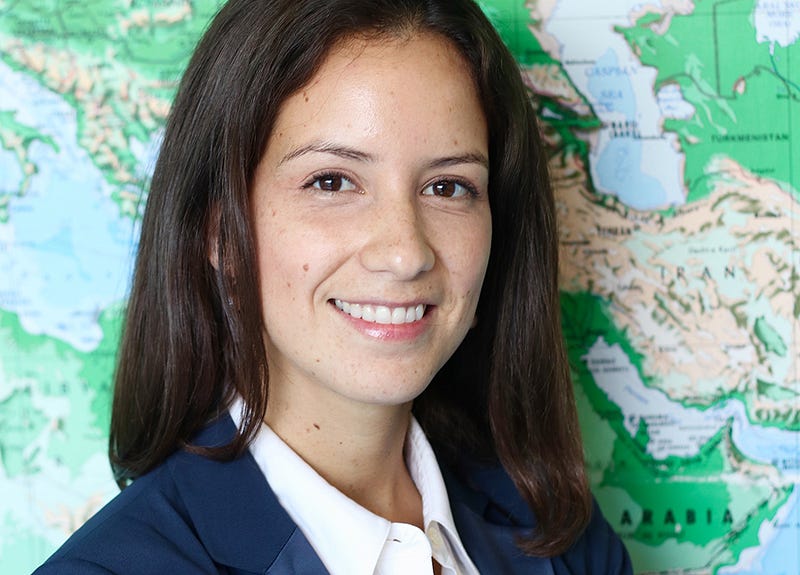
Michelle is an attorney with Greenpeace International. She’s one of the team bringing a groundbreaking legal case against the Norwegian government, for granting new oil drilling licenses in the Arctic Ocean.
Together with Nature and Youth, Greenpeace Nordic is suing the Government of Norway for putting current and future generations in danger.
“When I think of future generations, I think of my niece Blythe. At five months, she has every right to a full and healthy life?—?free from the catastrophic effects of climate change,” says Michelle.
“If you’re a government, and you’re accelerating climate change, there is a good chance we’ll see you in court. It is time to end the oil age.”
Help us beat Arctic oil in court
Nazhat Shameem Khan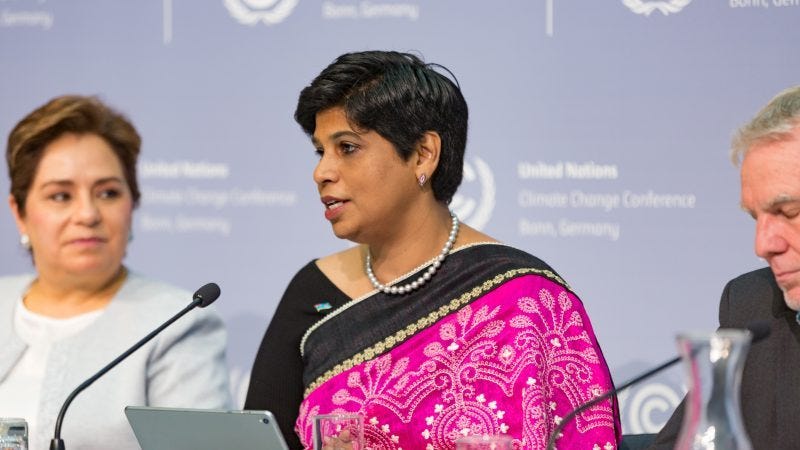
Fiji’s chief negotiator at COP23 says the climate talks must show collective determination to deliver on Paris commitments, despite Donald Trump’s antagonism. Entire villages are moving to higher ground in Fiji, while Pacific neighbours like the Marshall Islands?—?with a highest point just 10 metres above sea level?—?don’t have that option. As the host of COP23, Fiji is bringing the tradition of talanoa, as well as much-needed urgency, to the talks.
“Talanoa means that you sit together, you share experiences, you respect each other in the expression of different opinions, you build relationships, you settle difficulties and disputes, and during all of this you gather information,” says Nazhat.
“We are going to bring to the negotiations the sense of urgency that the Pacific islands know.”
Njeri Kabeberi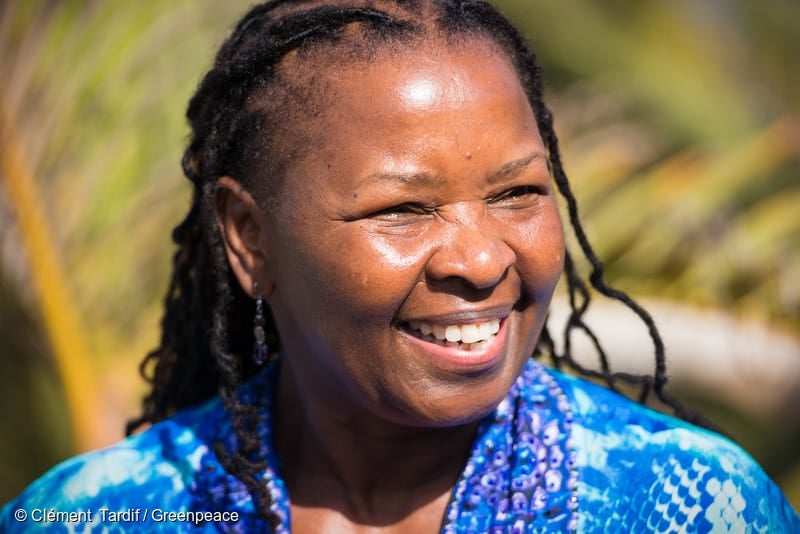
With her team at Greenpeace Africa, Njeri is committed to powering the environmental movement in Africa. She’s engaged in climate action from standing up for safe energy solutions in South Africa to helping farmers fight drought in Kenya, and working with Congo Basin communities to protect the world’s second largest tropical forest and its precious peatlands from industrial logging, mining and plantations. At COP23 we’re lobbying to ensure the current logging moratorium remains in place.
#DancefortheCongo inspired people across the globe to deliver an urgent musical message to climate negotiators: To protect people’s homes and the habitat of gorillas, chimps and forest elephants?—?and to keep carbon locked away in trees and soil instead of threatening the global climate?—?we must give the Congo Basin forest a chance.
Pia Hollenstein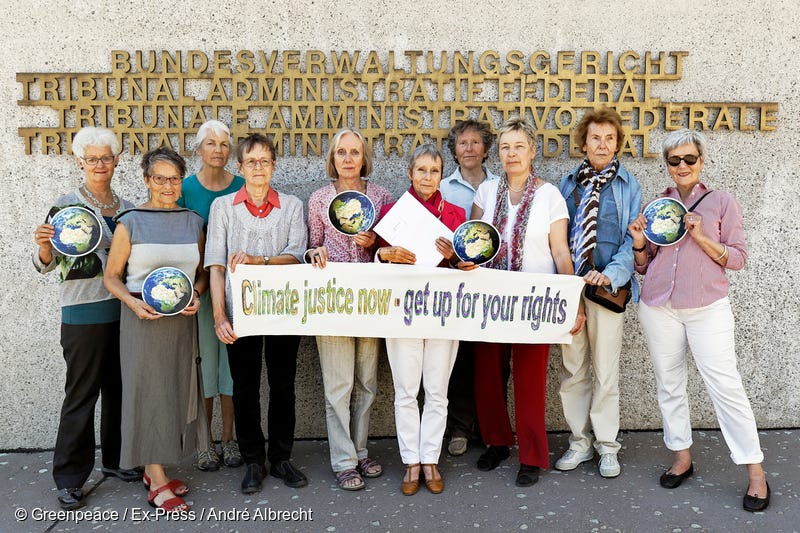
Pia, a health expert, has been climbing and skiing in the Swiss Alps for many years. Recently, she’s noticed the glaciers melting, as well as the much hotter summers, to which senior women, like her, are particularly vulnerable.
Pia is a board member of KlimaSeniorinnen—Senior Women for Climate Protection Switzerland—an association of nearly 1,000 senior women who are taking legal action against their government for its failure to protect them from the impacts of climate change.
Support communities seeking climate justice through legal action.
Jennifer Morgan is Executive Director at Greenpeace International and is at the UN Climate Change Conference in Bonn. Follow her on Twitter.


